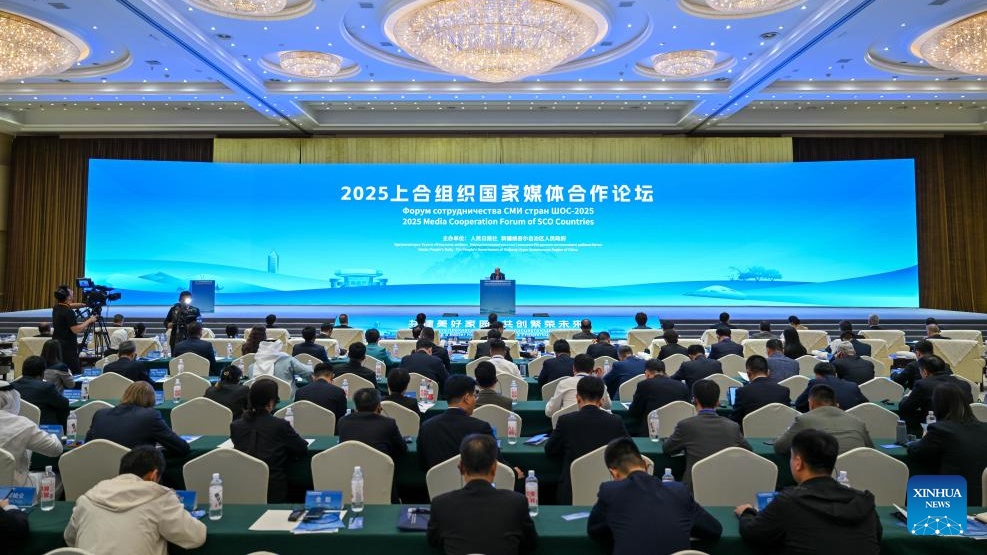The first air cargo route between Urumqi in Northwest China's Xinjiang Uygur Autonomous Region and Islamabad in Pakistan officially commenced operation on Tuesday, strengthening cross-border logistics between the two countries, China Media Group (CMG) reported.
The inaugural cargo flight departed from Urumqi Diwopu International Airport and landed in Islamabad approximately two hours and 40 minutes later, according to the report.
The route will operate two round-trip flights per week, with a maximum cargo capacity of 26 tons per trip, primarily supporting cross-border e-commerce and the transportation of high-value goods.
The launch of this cargo route represents a milestone in the development of the China-Pakistan Economic Corridor (CPEC), providing renewed impetus for bilateral trade and economic cooperation while bolstering the stability of regional industrial and supply chains, Liu Zongyi, director of the Center for South Asia Studies at the Shanghai Institutes for International Studies, told the Global Times on Tuesday.
Xinjiang will further leverage its location advantages to expedite the establishment of a comprehensive logistics network that links Central Asia, South Asia and Europe, according to the report.
Over the years, the CPEC has made significant progress, with recent milestones further highlighting its success.
The New Gwadar International Airport, funded and built through Chinese grants, officially commenced operation on January 20. The airport is a 4F-grade state-of-the-art facility built to handle large commercial aircraft.
Liu noted that the CPEC aims to develop into a well-established and diverse network, encompassing highways, railways, fibre-optic networks and air transport. With cross-border e-commerce requiring high logistical efficiency, he added that this cargo route will further streamline trade flows, enhance logistics and accelerate the corridor's development.
Pakistan exports a significant volume of goods to China, with fresh produce being a key category, he said. However, the country's underdeveloped cold chain logistics system often leads to high spoilage rates during long-distance transport.
"For instance, mangoes shipped via Kunming, Southwest China's Yunnan Province frequently arrive damaged. Establishing a two-way cargo flow on this route would enable faster delivery of Pakistani fresh produce to China, reducing losses and further deepening bilateral trade ties," Liu said.
He emphasized that Xinjiang's border trade is highly developed, facilitating both domestic and international commerce while serving as a critical hub linking South and Central Asia as well as South Asia and Russia. Enhancing its role as a logistics hub, he noted, will further drive economic cooperation under the Belt and Road Initiative, providing stronger support for regional economic growth.
According to data from the Urumqi border inspection station, as of early March this year, more than 700 international cargo flights had been cleared, representing a 9.1-fold increase in traffic compared with the same period last year.
Trade between China and Pakistan in 2024 hit $23.06 billion, an 11.1 percent increase year-on-year, according to data from the General Administration of Customs.


.png)

.png)

.png)























